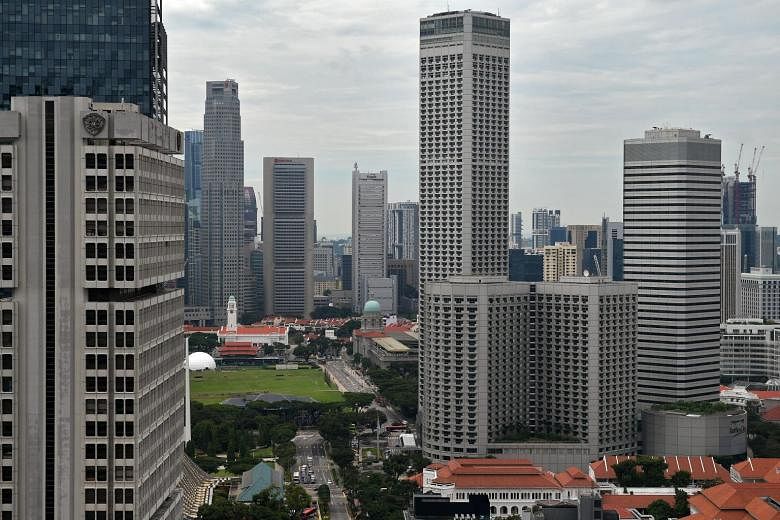SINGAPORE - Small and medium-sized enterprises (SMEs) for five out of six sectors in Singapore are expecting a worse business outlook for the coming six months, as the global economic slowdown continues amid a trade war that shows little signs of abating.
In particular, SMEs in manufacturing logged lower turnover expectations due to slowing demand for goods, while those in commerce and trading are expecting, for the fourth straight quarter, worse profit growth.
Meanwhile, SMEs in the retail and food and beverage sector saw the biggest slide in optimism surrounding business expansion.
These were findings from the latest SBF-Experian SME Index, a joint initiative of the Singapore Business Federation (SBF) and information services company Experian.
The index was based on a survey of more than 3,600 SMEs between July 8 and Aug 16, and registers their expectations in seven areas.
These are: Turnover, profitability, business expansion, capital investment, hiring, capacity utilisation, and access to financing.
The softer business outlook for the fourth quarter of 2019 and first quarter next year comes as the Ministry of Trade and Industry revised Singapore's full-year growth forecast to between zero and 1 per cent.
Overall, the index fell from 50.8 to 50.6, reversing the uptrend last quarter.
A reading above 50 indicates that companies expect business to improve in the next six months, while a reading below 50 indicates that they expect lower business activity.
All seven sub-indicators saw declining expectations in the latest survey, said SBF and Experian on Monday (Sept 23).
They added that the slowing economy has contributed to declines in expectations in turnover, profitability, business expansion, capital investment and hiring.
The manufacturing sector in particular saw negative turnover expectations as a result of a global slowdown in demand for manufactured goods.
Profitability expectations fell as well, marking five consecutive quarters of negative expectations.
There was also a decline in hiring expectations among manufacturing SMEs, likely due to adjustments in firms' expansion and hiring plans amid a more subdued global outlook, the survey found.
Lenders appear to be more wary in extending loans to these firms, with the sector seeing the biggest drop in expectations for access to financing.
Manufacturing is not the only sector that has seen dampened sentiment.
With no apparent end in sight for the US-China trade war, SMEs in the commerce and trading sector are looking to lower trade volumes, leading to negative profitability and turnover expectations.
This represents the fourth straight quarter of negative profit growth expectations for SMEs in the sector.
These firms are showing less investment appetite as well, suggesting they are "scaling back growth prospects and doubling down on existing resources" to tide through the period.
While SMEs in the retail and food and beverage sector have displayed the most optimism in turnover expectations, they too saw an overall decline in sentiment.
The sector, which registered the biggest slide in optimism around business expansion, appears to be managing aspirations as well in view of a challenging environment for the foreseeable future.
"This is supported by the sector's decline in capital investment expectations, reversing three consecutive quarters of growth," they said.
Only the construction sector emerged unscathed, registering positive gains in several indicators.
SBF and Experian attributed this to "strong public sector construction activities", with about 60 per cent of construction demand in 2019 expected to come from the public sector.
Mr James Gothard, Experian's general manager for credit services and strategy in South-east Asia, called the decline in optimism among SMEs in the retail and food and beverage sector "troubling", noting it could point to how economic uncertainty has impacted consumer sentiment, affecting domestically-oriented sectors.
He added that SMEs should adjust their strategies to "future-proof themselves", such as by embracing digital solutions to boost efficiencies or diversifying their target markets to improve competitiveness.
SBF chief executive Ho Meng Kit said: "Our SMEs are expecting a tighter credit environment which may impact cashflow.
"Bigger companies can step up and help by providing timely payments and fair payment terms to their smaller partners and suppliers."


